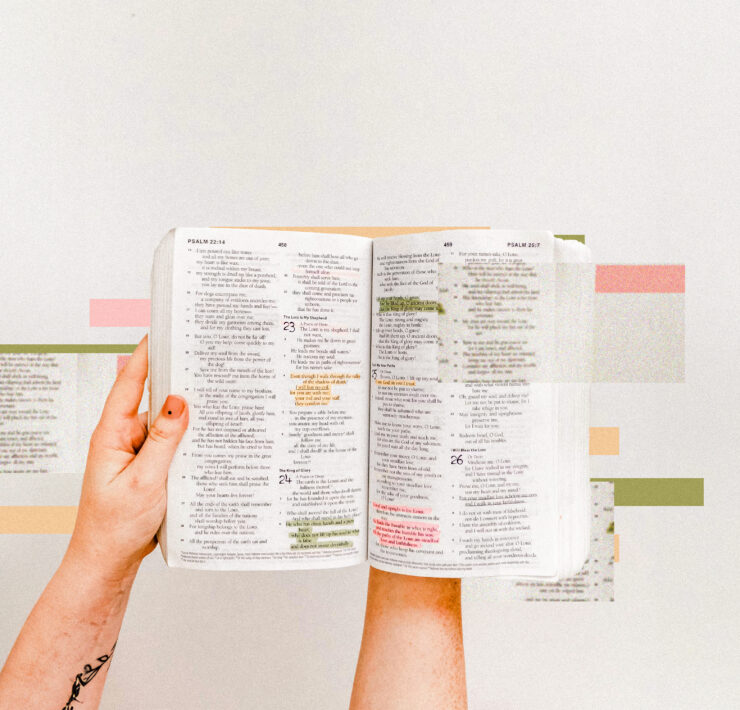The American Dream was never exactly a concrete list of bullet points. That’s part of what makes it so appealing. It was whatever you wanted it to be — whatever dreams you happened to carry. That said, the American Dream did have a few common themes. A good education. A good job. A house and a family. Some mix of any or all of those have played a major part in Americans’ claim to exceptionalism. If you grew up here, you undoubtedly heard some version of this for most of your life: Work hard and you can be anything you want to be.
Whether or not that dream was ever completely true for all Americans is a fair question with obvious answers, but in 2022, it’s growing more distant and less attainable for a growing number of younger generations. More than any generation before them, Millennials are struggling with money. 45 percent of Millennials say their financial situation is keeping them from having things in life they want — compared to 35 percent of all U.S. adults. As Gen Z enters the workforce in growing numbers, their fortunes aren’t looking any brighter.
A 2019 study found that about 42 percent of Millennials don’t know when or if they’ll ever be able to pay off their debts, while 20 percent fully expect to die in debt.
For years, older financial experts tut-tutted younger Americans for their financial woes, blaming pricey Starbucks drinks, avocado toast and a poor work ethic for their inability to get ahead. Conventional wisdom from the Generation X era of financial management held that things like student loans and a mortgage were both necessary and manageable burdens en route to a happy, content life. That wisdom has held, but the realities have changed. Now, a new generation is having to find new ways to manage their debt — and reevaluating what the American Dream might look like.
Dashed Hopes
“We are putting our hope in money and we’re seeing the consequences of that,” says Art Ranier.
Rainer is the vice president for institutional advancement at Southeastern Baptist Theological Seminary and author of books like The Money Challenge. He’s passionate about finding innovative ways to get people out of debt, and he says it starts by putting money in its proper place.
“Our hope for security, our hope for a better future, a hope for a sense of satisfaction, contentment — all those things we’re placing on money,” he says. “It was never meant to do that.”
That may come as a bit of relief for younger generations, since money is hard to come by. The oldest Millennials entered the job market during the Great Recession, facing one of the least friendly job markets in the nation’s history. Research says that placed them about 15 years behind previous generations in terms of building wealth.
Lo and behold, some 15 years later, Millennials hit their second “once-in-a-generation” recession while the oldest members of Gen Z encountered their first one. The 2020 recession wasn’t as dire as the 2008 financial crisis, but it still had an already financially fragile generation reeling, sending housing prices out of reach just when many were preparing to buy their first home. In 2022, with inflation taking an enormous toll on household budgets even as student debt relief looks ever less likely, it’s no surprise that younger Americans aren’t trusting in money to save them. It’s only ever let them down.
But since we live in a world where you need some money to survive, what are we supposed to do?
Reframing Perspectives
“Money in and of itself is not a bad thing,” Rainer says. “God didn’t just dump money to make us miserable, to draw us away from Him. He wants us to use those things for His purpose and for His glory.”
Rainer says that the Bible has over 2,000 verses about money. For comparison, the word “Heaven” is mentioned 582 times.
“Why does it seem to be such a very important topic to God?” Rainier asks. “What God’s trying to help us understand is that what we do with our finances demonstrates where we’re putting our trust in a very real, tangible way. We need to make sure that we’re giving God our first and our best. That’s a difficult teaching.”
There’s a story in the Gospels about a man we know only as the “rich young ruler,” who comes to Jesus looking to be saved. Jesus tells him to follow the commandments, which the young man says he already does. Then Jesus tells him to do one more thing: Sell everything he has and give the money to the poor. That turns out to be a bridge too far for the man, who walks away “grieving.”
Rainer says that this story is instructive because if we can get our perspective on what actually makes life worth living right, maybe we can find healthier ways to actually deal with our own financial situations. “God is asking us to let go, to hold loosely the things of this world, money, possessions,” Rainier says, “so that then we can take hold of that which is real life, which was what God wants to give us.”
First Things First
To really put this into practice, Rainer encourages anyone struggling with money to be generous with it. “Start giving,” he says. “The reason you want to start there is because that’s where the Bible starts. It’s not an Art Rainer thing. This is just me looking at the Bible and saying, ‘Hey, this is where scripture starts. So this is probably where we should start.’”
Easier said than done, especially for people who are already stretched financially thin. But Rainer points out that this is a matter of not only trust in God, but obedience to God too. “Biblical generosity is not always comfortable,” he says. “ You look at the examples that we find in scripture with the widow’s might, the Macedonians, this was not comfortable giving. They were not giving out of surplus. It was a real sacrifice for them to give.”
In addition to giving sacrificially, biblical generosity follows some patterns. God calls for generosity to be a priority — something we do with the best of what we’ve got, not the leftovers. God also calls for us to give proportionately — a percentage of what we have according to our income. Finally, God calls for giving to be done cheerfully. This is the beginning of modeling your finances after the biblical blueprint.
”You’re starting to align yourself with God’s design for money,” Rainer says. “You’re going to experience the real spiritual benefits of that. Anytime that you align yourself with God’s design for you, your life, your marriage, your relationships, you’re going to find yourself more content and more satisfied because you’re following God’s plan for you.”
That all sounds well and good, but it doesn’t actually get anyone out of debt. What good is a healthy perspective on money if rent is still going up while your wages don’t?
Rainer says that once you’ve got money in its right place in your heart, you can focus on the business of tackling debt realistically. “My encouragement is to just start somewhere,” he says. “Whether it’s setting aside $1,500 for a minor emergency, or maybe just saving $25 a month, maybe even $10 a month. Do something. Start taking these steps. You’ll feel better about yourself because you’re actually doing something about your finances.”
Out of Debt
All of this can sound pretty far removed from climbing inflation, a vast and growing wealth gap and mounting costs of living. But Rainer says Christians have ignored the spiritual dimensions of finances for too long, and that’s part of why we’re struggling so much. At some point, the American Dream became an end to itself. Making a lot of money became the goal — almost a God-given right that we have to protect. Why wouldn’t we? If money is your source of security, then wouldn’t you want to be as secure as possible?
“That’s ultimately going to disappoint,” Rainer says. “That’s not where our hope should be. But to use these resources, to have the freedom to be able to use these resources, to advance God’s kingdom in our own community and also around the world. God’s given us a tremendous opportunity and significant resources that we can leverage for His sake and for His glory.”
This might mean a different take on what we want our lives to look like, and what sorts of possessions, comfort and opportunities need to be prioritized in our lives. But as an old American Dream seems to be slipping away, maybe now is the time to replace it with something new, healthier and longer lasting.
“My hope is that I am able just to be a part of a generation that gets financially healthy,” Rainer says. “Not just so that they can spend money on whatever they want, but so that they can live, and give generously as God has designed us to do.”


























